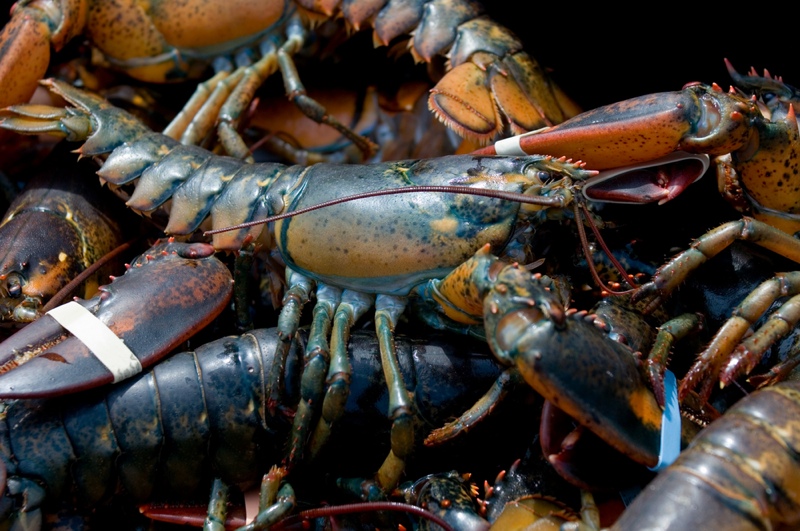Drastic New England Lobster Decline May Be Linked to Warmer Waters

This article was provided by AccuWeather.com.
Despite booming populations of adult lobsters, marine biologists and fisheries along the northern Atlantic coast of the United States are concerned about a dramatic population decline for young larval lobsters. Scientists searching for the cause of this drop see signs that ocean currents and warmer ocean waters are possible culprits.
Dr. Rick Wahle, research professor for the School of Marine Science at the University of Maine and founder of the American Lobster Settlement Index, has been tracking lobster populations since 1989. The scope of his study today tracks the waters in New England and Atlantic Canada.
Wahle and his crew of divers are tasked with counting the larval populations of American lobster. He told AccuWeather.com that the last few years have seen some downturn, but that recently the decrease was more drastic.
"In 2013 we saw one of the most widespread downturns in the history of [this study] for sure," Wahle said.
The young populations are nearly 50 percent of what they were in 2007.
Though yet to be fully confirmed, Wahle stated it is likely that oceanographic changes are responsible for the population downturn.
Sign up for the Live Science daily newsletter now
Get the world’s most fascinating discoveries delivered straight to your inbox.
Lobster eggs will float in the water for six to eight weeks before settling on the sea bed, he said. In that time they are vulnerable to wind-driven currents which will determine where they go.
RELATED U.S. Interactive Radar 'Coral Corridors' Sheltered Fish from Climate Change AccuWeather.com Hurricane Center
Ocean temperatures can also heavily impact lobster development. According to Wahle, the comfort zone for lobsters is below 68 F. Lately, he said, summer waters have been warm enough to create stress for lobsters. In 1999, significant lobster deaths occurred in Long Island Sound. The fishery there has yet to recover from the 80 percent loss of their lobsters, with many lobstermen no longer able to work.
As a result of warmer waters, lobster populations have been pushing north. In the Bay of Fundy, which once was too cold for lobsters to thrive, now has larger populations.
"There are some dramatic changes going on in temperatures affecting the species range," Wahle said.
The warmer waters off the New England coast also allow shell disease to thrive, which eats away at the shells of lobsters. It can be fatal to the crustaceans or make them unmarketable for selling live. This problem was once more common in Rhode Island, but there are signs of the disease moving north into Maine waters.
It will take six to eight years to see what the effects of this population downturn will mean for the fisheries and lobstermen of the Northeast, when this group of larval lobsters will be large enough to harvest. Wahle's group tries to use the information they gather as a forecasting tool for future seasons.
Wahle stated that these early life stages are when the lobsters are most vulnerable. With this research, they are just now understanding what the short-term effects these larval numbers have, with little to no concrete information on the long-term effects.
"The larval stage is dependent on the egg-baring females," he said, explaining that typically a low number of larval lobsters could point to a decrease in egg production.
However, in this case, Wahle said that the numbers of adult lobsters, including egg-baring females, are at "historic highs," which helps point to the atmospheric causes for the decrease.
Wahle's team is focused on providing their research to fisheries to help them forecast and work to protect egg production for this valuable New England resource.
"We're not always in the driver's seat for future generations," Wahle said.
Have questions, comments, or a story to share? Email Samantha-Rae Tuthill at SamanthaRae.Tuthill@accuweather.com, or follow her on Twitter @Accu_Sam. Follow us@breakingweather, or on Facebook and Google+. AccuWeather.com. All rights reserved. More from AccuWeather.com.









